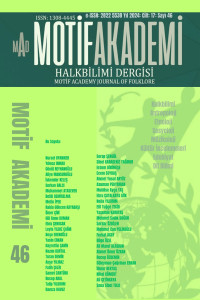Articles
Book Review
Issue Reviewers
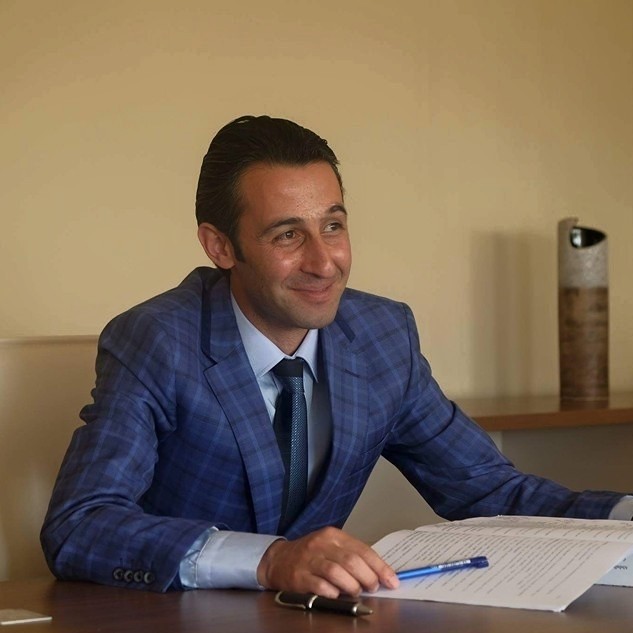
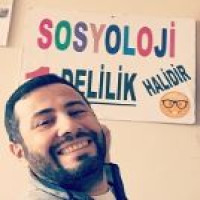
Alev SINAR UĞURLU 1967 tarihinde İstanbul’da doğdu. Beşiktaş Atatürk Lisesi'ni bitirdikten sonra 1988 yılında Marmara Üniversitesi Fen Edebiyat Fakültesi Türk Dili ve Edebiyatı Bölümünden mezun oldu. 1990 yılında Marmara Üniversitesi Sosyal Bilimler Enstitüsü Yeni Türk Edebiyatı Ana Bilim Dalında "İlkokul Okuma Kitapları (1921-1933)" adlı teziyle yüksek lisansını, 1995 yılında Marmara Üniversitesi Türkiyat Araştırmaları Enstitüsü Yeni Türk Edebiyatı Ana Bilim Dalında "Türk Hikâye ve Romanında Çocuk (1872-1950)" adlı teziyle doktorasını tamamladı.
1989-1996 tarihleri arasında Marmara Üniversitesi Atatürk Eğitim Fakültesi Sınıf Öğretmenliği ve Okul Öncesi Eğitimi Öğretmenliği Bölümleri'nde öğretim görevlisi olarak çalıştı. Eylül 1996’da Uludağ Üniversitesi Fen Edebiyat Fakültesi Türk Dili ve Edebiyatı Bölümüne yardımcı doçent olarak atandı. 17 Haziran 2002 tarihinde Türk Edebiyatı Bilim Dalında doçent, 29 Ocak 2009 tarihinde de Yeni Türk Edebiyatı Anabilim Dalında profesör unvanını kazandı.
Hikâye ve Romanımızda Çocuk, Türk Roman ve Hikâyesinde II. Dünya Savaşı, Aka Gündüz’ün Romanlarında Kadın, Çocuk Edebiyatı, Fevzi Lütfi Karaosmanoğlu Bir Muallifin Edebi ve Sosyal Yazıları, adlı kitapları başta olmak üzere çok sayıda makaleleri, bildirileri ve kitap içinde bölüm yazarlığı vardır.
Türk Ocakları Derneği Bursa Şubesi yönetim kurulu üyesi de olan Alev SINAR UĞURLU halen Bursa Uludağ Üniversitesi Fen Edebiyat Fakültesi Türk Dili ve Edebiyatı Bölümü öğretim üyesi ve Yeni Türk Edebiyatı Anabilim Dalı başkanıdır.
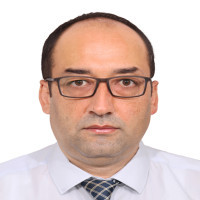

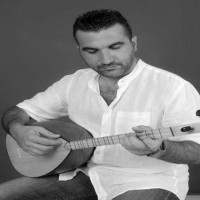

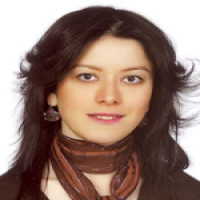
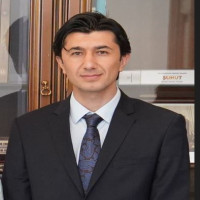


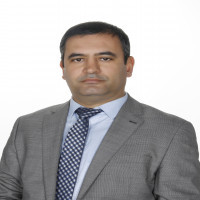




 Web
Web


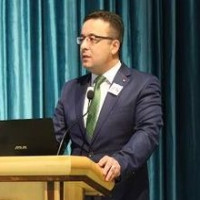


2012 yılında Selçuk Üniversitesi Türk Dili ve Edebiyatı Bölümü’nden mezun oldu. Aynı yıl Gazi Üniversitesi Sosyal Bilimler Enstitüsü Türk Halk Bilimi Anabilim Dalı yüksek lisans programında eğitim görmeye başladı ve bu programdan 2015 yılında mezun oldu. Yine aynı yıl Gazi Üniversitesi Sosyal Bilimler Enstitüsü Türk Halk Bilimi Anabilim Dalı doktora programında eğitim görmeye başladı ve 2019 yılında mezun oldu. 2022 yılında Kafkas Üniversitesi Fen-Edebiyat Fakültesi Türk Dili ve Edebiyatı Bölümüne Dr. Öğr. Üyesi olarak atanan Aslan, halk biliminin farklı alanları ile ilgili çalışmalarını sürdürmektedir.
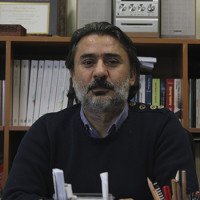
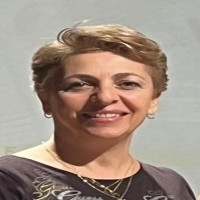
Dokuz Eylül Üniversitesi; Güzel Sanatlar Fakültesi Müzik Bilimleri Müzik Teknolojisinde Lisans (1990-1994), Sosyal Bilimler Enstitüsü Müzik Bilimlerinde Yüksek Lisans (1998-2002), Güzel Sanatlar Enstitüsü Müzik Bilimlerinde Doktora (2002-2007) yapan ve 2012 yılında Doçentlik unvanı alan Prof. Dr. Gülay KARŞICI 2013'ten itibaren Marmara Üniversitesi Güzel Sanatlar Fakültesi Müzik Bölümünde kadrolu Akademisyen olarak çalışmaktadır.
https://avesis.marmara.edu.tr/gulay.karsici/yayinlar
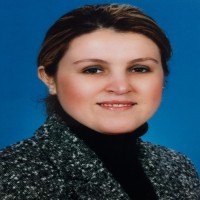

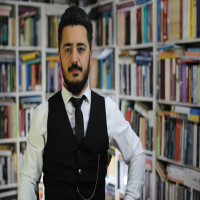

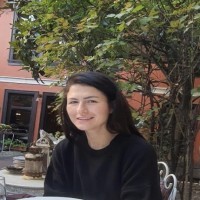

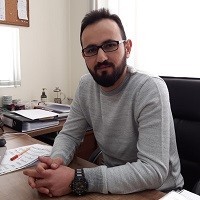

He studied Turkish Folklore, Turkish Language and Literature, Sociology and TV-Cinema. He worked as a writer, copywriter in magazines and as director in TV programmes and productions using pseudonyms. In addition to his articles in culture, literature and research journals, he is the author of Kavuğunda Pişekâr (Yasakmeyve, 2013), Kültürel Bellek - Sözlü Kültürden Yazılı Kültüre Hatırlama (Doğu Batı, 2018) [Cultural Memory - Memory from Orality to Literary], The Outlines of Çanakkale-Gallipoli Folk Literature and Culture (Vadi, 2019) and Öğrenci Folkloru – Eğlence ve Argo (Vadi, 2021) [Student Folklore - Entertainment and Slang]. After working at Akdeniz University (Antalya), he works as a lecturer at Bursa Uludağ University. His book Kültürel Bellek was awarded the 2018 Oğuz Tansel Folklore Award.


Prof. Dr. Mehmet Ali Çelikel graduated from Hacettepe University, Department of English Linguistics in 1993. He completed his MA in English Language and Literature at the University of Hertfordshire in England in 1997. He got his PhD with a thesis entitled “The Post-Colonial Condition: The Fiction of Rushdie, Kureishi and Roy” at Liverpool University in England in 2001. He has published two academic books in Turkish on post-colonial novel, entitled as Sömürgecilik Sonrası İngiliz Romanında Kültür ve Kimlik [Culture and Identity in Postcolonial English Novel] in 2011 and Çağdaş İngiliz Romanında Küreselleşme, Göç ve Kültür [Globalisation, Migration and Culture in Contemporary British Novel]. He currently works as a Professor at the Department of English Language and Literature, Marmara University, Turkey. mehmet.celikel@marmara.edu.tr
https://orcid.org/0000-0003-0402-9858
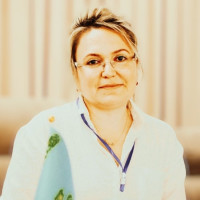
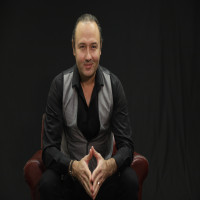
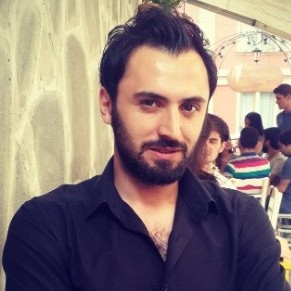



 Web
Web
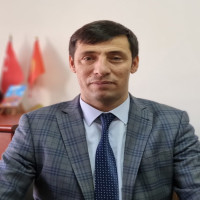


 Web
Web
Lisans: (1990-1995) Uygur Dili ve Edebiyatı/ Pekin Merkezi Milletler Üniversitesi
Yüksek Lisans: (2004-2007) Türk Dili ve Edebiyatı / İstanbul Üniversitesi Sosyal Bilimler Enstitüsü
Doktora: (2007-2014) Türk Dili ve Edebiyatı / İstanbul Üniversitesi Sosyal Bilimler Enstitüsü
Doçent: (2018) Üniversitelerarası Kurul


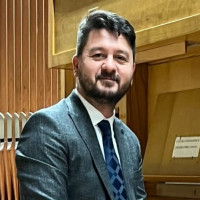
He graduated from Fine Arts High School Music Department and Education Faculty Music Teaching Department. His master's thesis is on modal studies of Anadolu’s folk songs. His doctoral thesis focuses on producing a teaching model based on exercises and etudes related to the tuning types of the baglama/saz instrument. After working as a music teacher in different cities of Anatolia, he has been working as an assistant professor in higher education institutions for 3 years in Turkiye. He produces scientific publications on music education, the transmission of Turkish Folk Music and the teaching of the baglama/saz instrument. His artistic activities focus on the arrangement variety of the baglama/saz instrument.

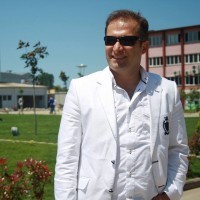
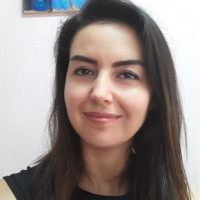

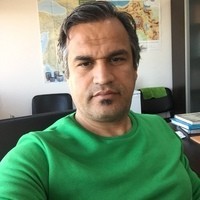







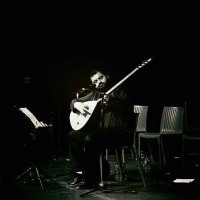
Aim & Scope
Motif Academy Journal of Folklore aims to share the current scientific knowledge of contemporary cultural sciences, especially folklore, with objective criteria. Original, innovative, concept-developing and ethical studies are supported by a publication and scientific committee made up of expert scientists and by impartial/transparent evaluation processes. The journal is committed to multidisciplinary approaches and seeks to promote international approaches and discussions. It deals with all forms of both material and expressionist culture and participates in contemporary theoretical discussions. The journal, which was published twice a year, semi-annually from 2008 to 2018, started to be published quarterly as of its 21st issue in 2018.
The journal includes scientific studies in the fields of cultural anthropology, ethnology, sociology, ethnomusicology, traditional arts, folk dances, the relationship between folklore and literature, the relationship between folklore and cultural history, which are important branches of cultural sciences, especially folklore. We especially welcome contributions in areas such as material culture studies, performance studies, narrative, online communities, urban culture, belief, ways of life, folk art and related aesthetics, traditions, crafts, traditional costume and occupational culture. Priority is given to original and critical studies that include current debates in transnational and local contexts.
Author Guidelines
GENERAL PRINCIPLES
1. Motif Academy Journal of Folklore is a peer-reviewed journal and published as four issues in three-month periods in a year.
2. In Motif Academy Journal of Folklore, we give a place to studies such as scientific articles, translations and introductory/critical reviews etc., concerning folklore, anthropology, ethnology, traditional arts, sociology of culture, history of religions, musicology, folk dances, handicrafts, literature and linguistics.
3. All kinds of legal liabilities concerning contexts of papers which are published in Motif Academy Journal of Folklore shall belong to the their authors.
4. Publication language is in Turkish and English.
5. The paper can be sended through Article Sending tab on http://dergipark.org.tr/mahder by becoming member. Peer-reviewing process can be followed carrying out membership login from the same page. After this stage, in order to make correction(s), it should be waited that reports have arrived from all peer-reviewers. After all reports by peer-reviewers have arrived, if considered necessary, author(s) shall convey the text containing opinions and suggestions by peer-reviewers, to the editorship (Additional: In case that corrections which were requested during the peer-reviewing process have not been made by author(s), the study shall be removed from the publication process. (Decision by Editorial Board, dated 15.12.2018).
6. In the process of reviewing the articles, double blind referee system is used.
7. At the beginning of the article, there should be Turkish and English abstract(s) consisting of minimum 150 and maximum 250 words; Turkish and English key words of 5; and Turkish and English (second language) title(s). The abstract should be of a feature that gives an opinion about scope of the study, its purpose, method, effects and results.
8. All issues of Motif Academy Journal of Folklore, which were published on General (Public) Network environment, are also available in print. All published issues until today of the journal which was printed in hard cover (paperboard/hardbound) can be requested from motifakademidergisi@gmail.com for a fee.
9. Researcher identification numbers (Researcher IDs) are being used to prevent some problems arising from scientists and academicians’ name/institution similarities in their scientific studies. In the scope of studies conducted in cooperation with TUBİTAK (Scientific and Technological Research and Council of Turkey)-ULAKBİM (Turkish National Academic Network and Information Center) and YÖK (Council of Higher Education), it was decided to use ORCID information. Authors who sended articles to our journal are required to convey, together with their texts of articles, their ORCID identification numbers which they would obtain by carrying out free membership from orcid.org, to the editorship.
10. The manuscripts must be sent in the following format. Manuscripts that are not entered into the system in this format are rejected after the review of the Editorial Board.
11. Our journal does not give a letter to the authors that their articles will be published.
LIMITATIONS
1. Articles should have maximum 20 pages including abstracts, graphics, tables, references, images (visuals) and appendix.
2. 28 articles in research and review type shall be given place in each issue of the journal. 30 studies at the most shall be given place together with studies in publication introduction/criticism and translation type. Book critiques are not subject to the same evaluation process as research / review type studies. (Decision by Editorial Board, dated 10.02.2019).
3. 70% of total number of articles in each issue of the journalhas been assigned to folklore field, and %30 to other fields of cultural studies. (Decision by Editorial Board, dated 15.12.2018).
4. Studies of which more than %50 of their content consists of images&visuals shall be refused during editorial process. (Decision by Editorial Board, dated 15.12.2018).
1. Manuscripts should be written in Microsoft Word program and their page setup should be arranged as below:
Paper Size Width: 16 cm Height: 24 cm
Top Margin 1,5 cm
Bottom Margin 1,5 cm
Left Margin 2 cm
Right Margin 1,5 cm
Font Cambria
Font Style Normal
Size (text) 11 (Cambria)
Size (abstract and footnote text) 9 (Cambria)
Paragraph Spacing Before 6 nk, After 0 nk
Line Spacing Single (1)
Paragraph indent 1 cm
2. In manuscript where a special font was used, also the font used should be sended together with the manuscript.
3. No details such as page number, header and footer etc. should be given in manuscript.
4. Only first letters of each word of headings within the manuscript should be capitalized and there should not be any other formatting.
5. In terms of spelling and punctuation, except for special cases where the paper or the subject requires, Spelling Book of Turkish Language Association should be taken as a basis.
6. The text to be included in the text should use the formal methods of the Word program for textual and textual endings such as pictures and photographs.
ARRANGEMENT of REFERENCES
In-text citation
In-text citation must be madein APA system:
1. All citations main texts are stated by the in-text footnote system. The method of footnoting at the bottom of the page should be used for explanations which are not deemed suitable to take part within the text and these notes should be lined up as 1, 2, 3 within the text.
2. By opening parentheses at appropriate place in the text, surname of the author, publication date and the cite page number are stated.
a) If citation has been made again to same references in the text, also the same method is applied; abbreviations such as op. cit., ibid etc. should not be used.
For example: (Köprülü, 1966: 71-76)
b) If the cited author name has been mentioned in the text, it is no need to repeat the author name within the parentheses.
For example: Boratav (1984: 11) states that the number of these stories is 34.
c) If the reference to which is cited is with two authors, both authors’ surnames should be used.
For example: (Aça and Yolcu, 2017: 72)
d) If authors are more than two, the phrase ‘‘et al.’’ (and others) should be used after the first author’s surname.
For example: (Lvova et al., 2013: 194)
e) If references to which are cited are more than two, citations should be separated by semi colon.
For example: (Kaya, 2000: 180; Artun, 2004: 86)
f) In the text, if archive documents have been benefitted from, citations to these documents should be stated in order as Document-1 or Archive-1, and archive document information should be written onto opposite side of the relevant phrase in bibliography.
g) Within the text, if information received from oral sources have been given place, citations should be stated as (TB-1, TB-2...) in a way that would stand for Tradition Bearer, and information on each tradition bearer should be stated in a conformable manner with citation code, which is made within the text, under the sub-heading of Oral Sources in References chapter.
h) Within the text, if information received from internet sources have been given place, citations should be stated as (URL-1, URL-2 ...) in a way that would stand for internet sources, and information on each internet sources should be stated in a conformable manner with citation code, which is made within the text, under the sub-heading of Internet Sources in References chapter.
ARRANGEMENT of REFERENCES
1. References to which are cited in the manuscript only should be given place in the References and alphabetical order by author surname should be followed.
2. If more than one study by an author is to take part in the references, an order by the publication date from old to new should be done. For studies which were carried out in the same year, the phrases “a, b, c…” should be used and these should be same with citations which are made within the text, as well.
Book:
Köprülü, M. F. (1999). Edebiyat araştırmaları. Ankara: Türk Tarih Kurumu.
Translated Book:
Sartre, J. P. (1967). Edebiyat nedir. (Çev.: Bertan Onaran), İstanbul: De.
Lvova, E. L. - Oktyabrskaya, İ. V. - Sagalayev, A. M. (2013). Güney Sibirya Türklerinin geleneksel dünya görüşleri: Simge ve ritüel. (çev.: Metin Ergun), Konya: Kömen.
Book by Two Authors:
Ergun, M. - Aça, M. (2005). Tıva kahramanlık destanları-1. Ankara: Akçağ.
Book by More than Two Authors:
Aça, M. - Gökalp, H. - Kocakaplan, İ. (2009). Başlangıçtan günümüze Türk edebiyatında tür ve şekil bilgisi, İstanbul: Kriter.
Paper:
Aça, M. (2018). Trabzon çevresinde tütün kaçakçıları ve kolcular etrafında oluşan anlatılar. Uluslararası Türkçe Edebiyat Kültür Eğitim (TEKE) Dergisi, 2017, 6 (4), 2545-2565.
Unpublished Dissertation:
Küçük, A. (2015). Giresun yöresi kemençecilik geleneği üzerine bir araştırma, Balıkesir: Balıkesir Üniversitesi Sosyal Bilimler Enstitüsü Yayımlanmamış Doktora Tezi.
Proceedings:
Cunbur, M. (2000). Dede Korkut Oğuz-namelerinde İslami unsurlar. Uluslararası Dede Korkut Bilgi Şöleni Bildirileri. (hzl.: A. Kahya-Birgül vd.), 77-108, Ankara: Atatürk Kültür Merkezi Başkanlığı.
Internet Sources:
* URL-1: “Social groups”. http://www.sociologyguide.com/basic-consepts/Social-Groups.php (Date of access: 10.06.2014)
* Hufford, M. (1991). American folklife: A commonwealth of cultures”, http://www.loc.gov/folklife/cwc/ (Date of access: 17.06.2014)
Archive Sources:
Belge-1/Arşiv-1: BOA-Başbakanlık Osmanlı Arşivi [Prime Ministry Ottoman Archives] (BOA, DH.EUM.EMN, no: 3, 19.Ş.1330); BCA: Başbakanlık Cumhuriyet Arşivi (BCA, 1927)
Oral Sources:
KK-1: Mustafa Mutlu, İstanbul-1935, Primary school graduate, Retired. (Interview date: 12.06.2014)
Ethical Principles and Publication Policy
ETHICAL PRINCIPLES
Publication processes of Motif Academy Journal of Folklore are based on producing, developing and sharing knowledge evenhandedly within scientific methods.
Refereed articles are studies require scientific methods and they provide objectivity. All components of publication process (publisher, editors, authors, reviewers and readers) should obey ethical rules for scientific production. Within this context, the policies of ‘publication ethics’ and ‘open access’ also require all components of publication process to obey the ethical principles, in direction of guides and policies of Committee on Publication Ethics (COPE), as “Code of Conduct and Best Practice Guidelines for Journal Editors” and “COPE Best Practice Guidelines for Journal Editors”.
In case we identify that author(s) of the manuscript use(s) falsified and fabricated data, then we will report this to the institution of the authors where he/she works and reject the manuscript. Editorial members of the journal and/or the reviewers reserve the right to ask author(s) to provide raw data which was used in the manuscript.
Ethical Responsibilities of the Publisher and Editorial Board
* Motif Foundation and editorial board, the publisher of Motif Academy Journal of Folklore, is committed to complying with ethical standards at all stages of the publishing process. The Editorial Board supervises the compliance of the articles in the journal with the ethical principles. Manuscripts submitted to the journal should not have been previously published or published in another journal. Other works of the owners of the dubbing initiatives identified by the Editorial Board are not included in the journal. The publication of unpublished symposium proceedings is possible provided that symposium participation is indicated in the study. (Additional: Presentation text of symposium at the rate of maximum 20% of total article number shall be given a place in each issue of the journal. (Decision by Editorial Board, dated 15.12.2018).
* Papers which were sended to the journal shall be checked through similarity (plagiarism) programs such as Turnitin etc. during editorship process. Studies having more than 20% of percentage of similarity shall not be able to be published.
* Information such as author(s)’ name(s), under the title of the paper, author(s)’ title(s) in footnote, institution the author works, and e-mail address that can be arrived to the author etc. should be no given place. Since it can be seen by system administrator that papers have been added to the system or sended to the journal, by which academician, these information shall be added by the editor to the paper after the papers have gone through peer-reviewing process. Therefore, while papers are entering into the system, it should be assured that no information belonging to the author have been given a place in the paper by reviewing them. This matter is important to enabling peer-reviewers to review the article in a more comfortably way.
* In articles with multiple (more than one) authors, contribution to which each author made should be added to the end of their title, address and mail information.
* The articles whose editorial process is completed are published sequentially based on the dates of inclusion in the evaluation process. The order of publication is not changed with any justification.
Ethical Responsibilities of Reviewers
The articles in Motif Academy Journal of Folklore are evaluated by double-blind review in a process, which neither the authors know the reviewers nor the reviewers know the authors; reviewers cannot communicate the authors directly; article evaluation forms and proofreading requests are sent to the authors through the website of the journal. Reviewers must bear the ethical responsibilities in Motif Academy Journal of Folklore as below:
* Reviewers should only accept to evaluate the articles related to the field of their specializations.
* Reviewers should make the evaluation impartially and confidentially. In accordance with this principle, the articles they review should be annihilated after the evaluation * process, but they should be used after publication. Nationality, gender, religious beliefs, political beliefs and commercial concerns should not distort the impartiality of the evaluation.
* When reviewers understand that there is a conflict or collaboration, they should inform the editors and refuse to evaluate the article.
* Reviewers must evaluate articles with a constructive attitude in accordance with the academic etiquette rules; they should refrain from insulting and hostile personal comments.
* Reviewers should evaluate the articles they agree on during the evaluation.
Ethical Responsibilities of the Authors
The ethical responsibilities of the authors that apply to Motif Academy Journal of Folklore as below:
* The authors should not send an article published in or sent to be published in another journal to Motif Academy Journal of Folklore at the same time.
* The authors should send original articles to Motif Academy Journal of Folklore. Authors should refer to the sources they use in writing articles in the correct way in the direction of ethical principles.
* Persons who do not contribute to the articles should not be listed as authors, and it should not be proposed to change the author order of a published article and to add authors.
* Reviewers must notify the editors of the conflicts and collaborations about the article.
* In the evaluation process of the articles the authors should provide the editorial staff with information about the articles or the raw data if required.
* The authors must document the rights to use the data they use in their articles, the permission for research or the approval of the participants to whom they have searched.
* Authors should communicate with the editors to provide information, to correct the article or to withdraw it when they are aware of the error associated with the evaluation and early appearance phase or the published article in electronic form.
* The author(s) must specify that they received the ethics committee approval for the researches that require data collection by using quantitative or qualitative methods such as experiment, survey, scale, interview, observation, focus group work that require ethics committee decision; the author(s) must also specify the name of the ethics committee, the date and the number of the ethics committee decision on the first-last page and in the method section of the candidate article. In addition, the author(s) must include information on the fact that the informed consent form was received for the case reports in the articles. An Ethics Committee Document is definitely requested for researches that collect data using interview techniques such as surveys, interviews, focus group studies, observations and prepared with qualitative and quantitative approaches. The approval date and unit of the Ethics Committee Document should be specified in the "Description" section in addition to the document during the application.
Notification of Ethics Non-Principles Status Editor
In case of encountering an unethical situation in articles or about editors, reviewers and authors or in articles that does not comply with the ethical principles regarding in the Motif Academy Journal of Folklore, it should be reported by motifakademidergisi@gmail.com
PEER REVIEW PROCESS
* All transactions in the journal's publication process are done at http://dergipark.org.tr/mahder.
* In the articles sent to the journal, firstly, the compliance of the article with the publication rules is examined. Articles that comply with the rules of publication are primarily evaluated by the editor. The articles that pass the editor's preliminary evaluation are directed to two referees who are experts in their fields. Authors are contacted in accordance with the reports of the referees in the articles that received the printable report from both referees and requested correction.
* The authors are asked to send the article again by making the corrections requested by the referees. The referee reports, which cannot be published, will be notified to the article owner. Reports that are positive from one of the referees and negative from the other are directed to a third referee. The publication is decided based on the opinions of the third referee.
* The referees are asked to evaluate the articles within 15 days. With the expiration of the 15-day period, a reminder message is sent, which gives an additional period of 7 (seven) days. At the end of this period, another referee is appointed instead of the referee who did not respond to the evaluation.
* Blind referee system is applied in the journal. Writer, institution etc. in the articles sent to the referees. such information is not included. in this way unbiased reviews of the referees are provided.
* This journal has adopted the policy of providing open access in light of the rules set by the Budapest Open Access Initiative. Open access increases the global exchange of information and has beneficial consequences for humanity.
License: CC BY-SA
This license lets others remix, adapt, and build upon your work even for commercial purposes, as long as they credit you and license their new creations under the identical terms. This license is often compared to “copyleft” free and open source software licenses. All new works based on yours will carry the same license, so any derivatives will also allow commercial use. This is the license used by Wikipedia, and is recommended for materials that would benefit from incorporating content from Wikipedia and similarly licensed projects.
Price Policy
Articles submitted to the journal system upon request for publication are included in the referee evaluation process after the conformity review to be conducted by the Editorial Board. The authors of the articles that are decided to be included in the referee evaluation process are informed about the process. The authors are requested to transfer the process management fee to the Motif Foundation account with this information in order to pay (800 TL/50 $/40 €) the expertise fee to the referees who will take part in the evaluation process and to cover the printing, printing and postage expenses of the journal. Process management fee is 400 TL for postgraduate students who do not work anywhere. Following the feedback of the article holders, the articles are included in the referee evaluation process. According to the evaluation results of the referees, the process operation fee is returned to the authors of the articles which are not deemed appropriate to be published with 30% deduction. No fee is charged except for the specified process. (Decision by Editorial Board, dated 15.03.2023).
The process management fee: 800 TRY
The process management fee is 400 TL for postgraduate students who do not work anywhere.

